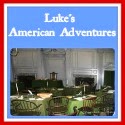Few events in the postwar era of America have cast such a long shadow over our national life as the assassination of President John F. Kennedy. The murder of a handsome and vigorous president shocked the nation to its core. In their grief, Americans were inclined to take to heart the legends that emerged during the immediate aftermath. Though the assassin was a communist and an admirer of Fidel Castro, many insisted that President Kennedy was a martyr to the cause of civil rights and deserved a place of honor next to Abraham Lincoln as a champion of racial justice. Others held him up as a great statesman who labored for international peace. But by far the most potent element of Kennedy’s legacy was the idea of Camelot.
The legend of Camelot was well-known to the era. “Camelot” was Lerner and Loewe's musical adaptation of T.H. White's popular novel, "The Once and Future King." While the plot of the musical is rather dark, focusing on the forces set out to destroy the kingdom, the musical begins with Arthur extolling the perfection of the kingdom, and how something as arbitrary as the weather is controlled for the inhabitants’ convenience.
It was also one of President Kennedy’s favorite musicals. Just after her husband was buried, Jacqueline Kennedy agreed to a magazine interview. Sitting down with Theodore White from Life Magazine, Mrs. Kennedy reflected on her husband. The television once was a blessing; Kennedy’s youthful and poised appearances during debates with Richard Nixon played a significant role in his election. Now, just a few years later, it would broadcast news of his death and his funeral. Only the most hard-hearted person could be left unaffected by their son’s salute of his father’s coffin. By today’s jaded standards, we’d call her interview “damage control,” and in a way it was. However, what she wanted was for her husband to be remembered as passionate and an idealist. Smartly, Mrs. Kennedy shared JFK’s affection for the musical, particularly the closing lines of the title song. Arthur shares them with Tom, the new knight who has come to take up the mantle for a new generation:
In current public opinion polls, Kennedy consistently ranks among Thomas Jefferson and Abraham Lincoln as one of the most popular American presidents, agreeing that he was young and full of progressive ideas. Historian Arthur Schlesinger Jr. wrote it was "as if Lincoln had been killed six months after Gettysburg or Franklin Roosevelt at the end of 1935.” The 1964 Civil Rights Act was a posthumous accomplishment, and many wonder what a second term would have accomplished. Conversely, critics have derided Kennedy's womanizing and laissez-faire attitude, arguing he was more style than substance. Perhaps, with what we’ve learned over time, Camelot is not an exact explanation of the early 1960s in America, but an appropriate metaphor: a time seemingly perfect yet filled with underlying tribulations, and an unanticipated end that still holds out hope for the future.





No comments:
Post a Comment